Shakespeares Roman Trilogy
The Twilight of the Ancient World
PAUL A. CANTOR
The University of Chicago Press
CHICAGO & LONDON
The University of Chicago Press, Chicago 60637
The University of Chicago Press, Ltd., London
2017 by The University of Chicago
All rights reserved. Published 2017
Printed in the United States of America
26 25 24 23 22 21 20 19 18 17 1 2 3 4 5
ISBN -13: 978-0-226-46248-6 (cloth)
ISBN -13: 978-0-226-46251-6 (paper)
ISBN -13: 978-0-226-46265-3 (e-book)
DOI : 10.7208/chicago/9780226462653.001.0001
Library of Congress Cataloging-in-Publication Data
Names: Cantor, Paul A. (Paul Arthur), 1945 author.
Title: Shakespeares Roman trilogy : the twilight of the ancient world / Paul A. Cantor.
Description: Chicago ; London : The University of Chicago Press, 2017. | Includes bibliographical references and index.
Identifiers: LCCN 2016049357 | ISBN 9780226462486 (cloth : alk. paper) | ISBN 9780226462516 (pbk. : alk. paper) | ISBN 9780226462653 (e-book)
Subjects: LCSH : Shakespeare, William, 15641616KnowledgeRome. | RomeIn literature. | Nietzsche, Friedrich Wilhelm, 18441900.
Classification: LCC PR 3069. R 6 C 29 2017 | DDC 822.3/3dc23 LC record available at https://lccn.loc.gov/2016049357
 This paper meets the requirements of ANSI/NISO Z 39.48-1992 (Permanence of Paper).
This paper meets the requirements of ANSI/NISO Z 39.48-1992 (Permanence of Paper).
Contents
In publishing a second book on Shakespeares Roman plays, I am confessing to a lifelong fascination with Shakespeare and Rome. My first serious encounter with Shakespeare occurred in junior high school, when we studied Julius Caesar. At the time, the play struck me as the most wonderful literary work I had ever read, and it deepened an interest I had already developed in classical antiquity as a result of my childhood love of Greek and Roman mythology. Our class project on the play led me to read whatever I could find about ancient Rome. In my junior year of college, I took a course that dealt with the theory and practice of the Roman Republic. For that course, I wrote a paper on Coriolanus entitled The Rulerless City and the Citiless Man, which eventually provided the basis for my doctoral dissertation, which in turn provided the basis for my first book, Shakespeares Rome: Republic and Empire. The first course I ever gave on my own centered on the Roman plays. I have taught them regularly ever since and have given lectures and seminars on them at a wide variety of institutions while continuing to publish on the subject. My interest in Rome has continued unabated. I have visited the actual city twice and toured Roman ruins all the way from Manchester, England, to Chersonesus in Sevastopol, Ukraine. I make no apologies for returning again and again to the subjects of Shakespeare and Rome. Either one would justify a lifetime of study, and together they have allowed me to combine my interests in literature, history, art, architecture, archaeology, politics, and philosophy. My obsessions with Rome and Shakespeare have fed on each other. The more I have studied Shakespeares plays, the more I have learned about Rome, and the more I have studied Rome, the more I have been able to find in the Roman plays. This new book on the subject is the result of all these endeavors.
Still, Shakespeares Roman Trilogy is designed to be an independent work, and one need not have read Shakespeares Rome to follow its argument. Nevertheless, I should describe the ways in which this new book develops out of, and advances beyond, the old one. In writing my first book, I tried to keep its claims as modest and manageable as possible. Shakespeares Rome is largely devoted to discussing Coriolanus and Antony and Cleopatra as contrasting portraits of the Roman Republic and the Roman Empire. As a result, I wrote very little about Julius Caesar in my first book. I did suggest at the time that Julius Caesar provides the lynchpin of a historical trilogy that begins with Coriolanus and ends with Antony and Cleopatra, a trilogy that portrays the rise and fall of the Roman Republic. In that story, Julius Caesar is central. Due to space limitations and other considerations, I did not feel that I could adequately develop my argument about the Roman plays as a trilogy in my first book. Thus, Shakespeares Roman Trilogy fulfills a promise I made four decades ago. In this new book, I give equal time to Julius Caesar and integrate my analysis of the play into my discussion of Coriolanus and Antony and Cleopatra. Rather than treating each play separately, I move back and forth among the three to show how Shakespeare builds on a grand scale, creating what amounts to a trilogy out of the plays.
Another principal development in Shakespeares Roman Trilogy is that I As I spell out in this book, the buried theme of Shakespeares Roman plays is the way that the dissolution of the Roman republican regime prepared the way for the rise of Christianity in the Roman Empire. Even today I suspect that many will find this claim far-fetched, and those willing to entertain it may nevertheless rule out the possibility that Nietzsches idea of the slave revolt in morality could have any bearing on Antony and Cleopatra. In the early 1970s, I had even greater doubts about the advisability of openly using Nietzsches thought as a guide to Shakespeares. Accordingly, the buried theme of the Roman plays became the buried theme of Shakespeares Rome.
I did not, however, completely conceal my debt to Nietzsche in my first book. Indeed, I thought that the two long quotations from Beyond Good and Evil that serve as epigraphs to parts 1 and 2 of Shakespeares Rome would provide clues to the Nietzschean dimension of my argument. But none of the published comments on the book called attention to the Nietzsche epigraphs or to my covert discussion of the importance of Christianity in Antony and Cleopatra, largely carried out in the notes. One of my major goals in Shakespeares Roman Trilogy is to make my debt to Nietzsche explicit. I believe that the conjunction of the Renaissance playwright and the German philosopherhowever implausible a pair they may seem at first to formwill serve to illuminate the thoughts of both. Nietzsche sheds light on several aspects of Shakespeares Roman plays, but they in turn can serve to clarify several controversial issues in Nietzsches philosophy.
I am well aware that conventional scholarship would dictate that I forget about Nietzsche and analyze Shakespeares work only in its immediate historical context, that is, in light of the understanding of Rome developed by his Elizabethan and Jacobean contemporaries. While recognizing the value of such an approach, I am trying a thought experiment in this book: to see what happens if we expand the intellectual framework in which we view Shakespeares Roman plays. I regard Shakespeare as one of the most profound thinkers on the subject of ancient Rome. I therefore judge him worthy of being studied in conjunction with other profound thinkers on Rome, including Nietzsche, as well as someone who may have anticipatedand possibly influencedboth, Niccol Machiavelli.
Thus, in a remarkable act of imaginative archaeology, Shakespeare uncovers in Coriolanus what it was like to live in an ancient city with its republican institutions, civic gods, narrow horizons, and a pagan focus on this-worldly existence. In an equally remarkable act of historical imagination, in

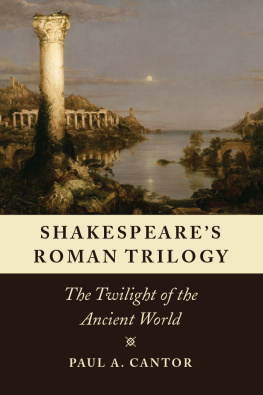
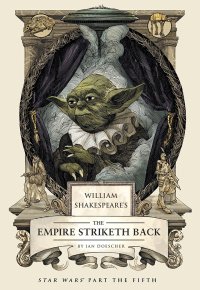
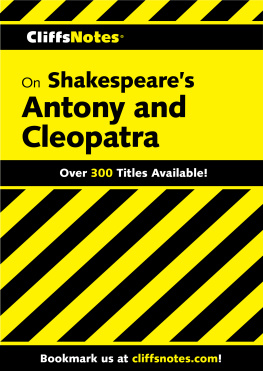

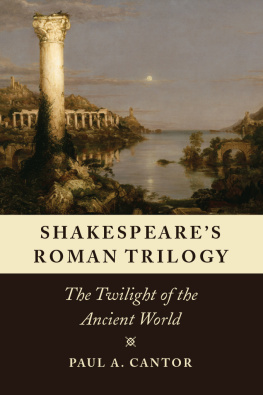
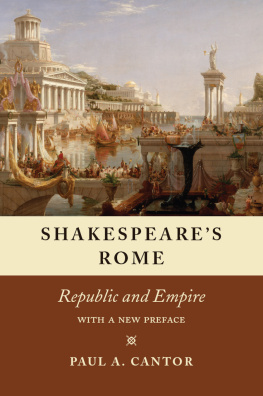
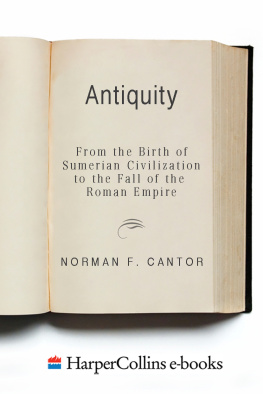
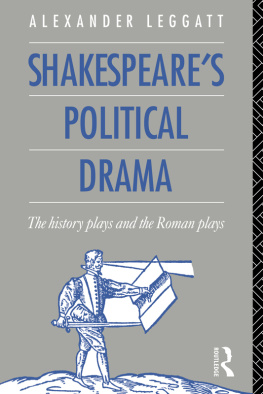
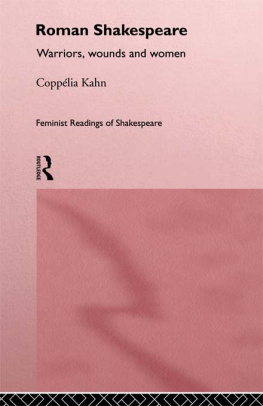
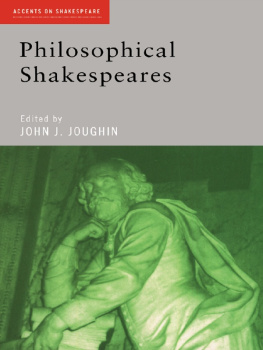
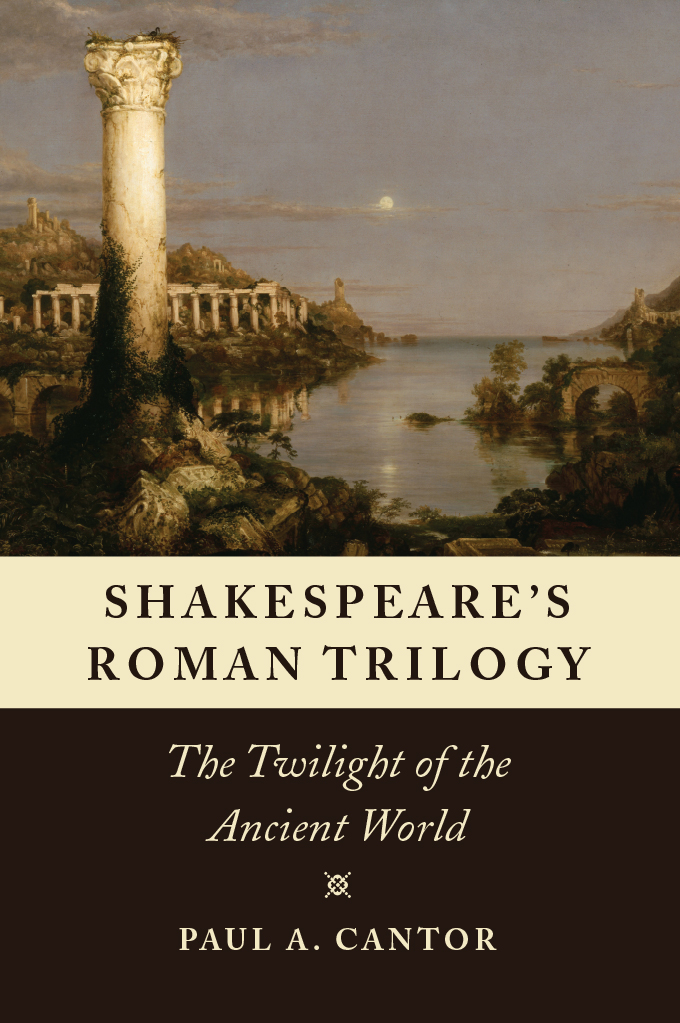
 This paper meets the requirements of ANSI/NISO Z 39.48-1992 (Permanence of Paper).
This paper meets the requirements of ANSI/NISO Z 39.48-1992 (Permanence of Paper).